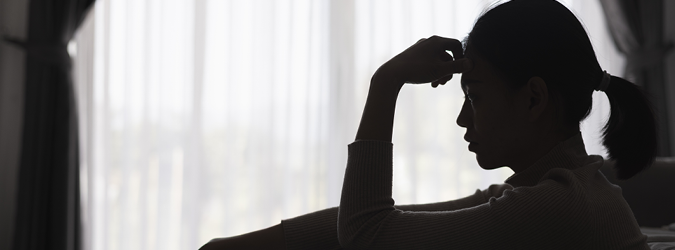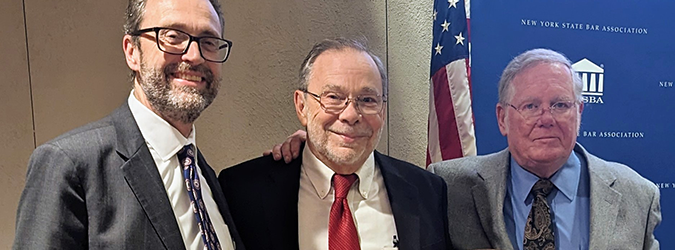The Criminalization of Mental Illness: Incarceration’s Effect on Mental Health and Trauma
1.20.2023
The best way to curb the disheartening increase of people with mental illness living in state prisons and city jails is to act before these individuals are incarcerated, panelists told lawyers gathered for Monday’s Presidential Summit at the New York State Bar Association’s Annual Meeting.
Jeff Beck, former director of the Prison Visiting Project at the Correctional Association of NY, in Brooklyn, said deciding who responds to an emergency call involving a person with a mental illness, and then determining where the person is placed, are key decisions that will help keep individuals from being incarcerated.
For example, is it the police, a combination of police and health care personnel or other responders who answer the first emergency call? And then, is the person placed in a jail or a hospital or a community-based program?
“We need to get people out of the system,” Beck told lawyers, referring to correctional institutions.
Panel moderator Patricia J. Warth, an attorney and director of the New York State Office of Indigent Legal Services in Albany, told the audience that the choices a society makes are crucial.
The panel is part of the association’s Presidential Summit “Mental Health and the Justice System – Impacts, Challenges, Potential Solutions.” The Summit aims to focus attention on how untreated mental illnesses and a lack of funding and treatment have created a crisis in the criminal justice system.
Everyone from attorneys and their clients to judges, courthouse staff and prisoners have been affected while the prolonged pandemic and deepening societal inequities exacerbate the ongoing crisis.
“We are choosing to incarcerate people,” said Warth. “We can make choices that are more humane and rely less on incarceration for people with mental illnesses.”
In her opening remarks, Warth laid out how the United States has struggled with creating appropriate and humane treatment systems for people with mental illnesses since the 1900s.
The federal legislation signed by President John F. Kennedy in 1963 discharged thousands of patients from state hospitals.. Yet the proposed creation of a network of community-based mental health care centers never received adequate funding. The result was people with mental illnesses were left on the streets, arrested and began to overwhelm state prisons and city jails.
In August 2022, the association created The Task Force on Mental Health and Trauma Informed Representation to evaluate how the mental health crisis and the civil and criminal justice systems are intersecting in today’s world. The Task Force aims to lay out ways to help adults and children with mental health challenges and/or trauma histories.
Beck said it is essential to keep people living with mental illness away from correctional institutions, which operate with “a punishment paradigm.”
Referring to the mental health units operating in prisons and jails, he said, “It is difficult to create a therapeutic environment.”
Rules are everywhere in a rigid prison system and people suffering mental illnesses frequently respond more slowly, or don’t understand, direct orders from security officers. They can end up facing penalties and punishment, even solitary confinement, which is extremely upsetting and dangerous for a person with a mental illness.
Beck said the city jail system, set up for short-term interventions, does not provide sufficient time to develop and carry out discharge plans. “It’s a constant recycling of people who float in and out of the system and who are not a risk to the community,” Beck said. “Yet they become a burden to the community because there is not a supportive system.”
Zack McDermott, the former Brooklyn public defender who is living with mental illness, spoke during the Presidential Summit’s first panel. He has recounted his experiences with the law and mental healthcare in his book, “Gorilla and the Bird: A Memoir of Madness and a Mother’s Love.” McDermott was joined on the stage by his mother Cindy McGilvrey, who shared her experiences caring for her son.
McDermott discussed how a mental breakdown led to his arrest and stay in a psychiatric hospital. “You can have people in jail with all types of issues from substance abuse to psychosis. Jail is not the place for them,” he said.
He said his time spent under observation in a psychiatric hospital felt like a prison. “It was punitive, you are given limited visitors, and the food is bad. You are denied access to the people you love, the things that will make you feel good,” he said. McDermott’s legal experience helped him navigate his time in the hospital, but he says most patients don’t know how to advocate for themselves. “They don’t tell you how to get out once you are in,” he said.






